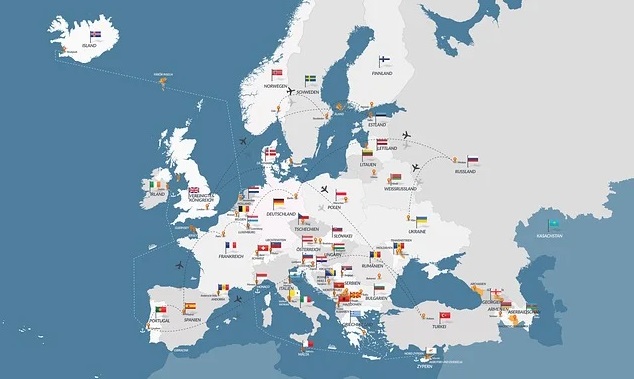The European Fund and Asset Management Association (EFAMA) has today published the 16th edition of its Asset Management in Europe report, which provides in-depth analysis of recent trends in the European asset management industry.
Key findings of the report include:
• Trends in assets under management (AuM) – AuM in Europe grew by 8.3% in 2023, driven by rising stock and bond valuations throughout the year. With stock markets maintaining their upward trajectory in 2024, we estimate that AuM in Europe reached a new record of EUR 32.7 trillion at the end of September 2024.
• AuM across European countries – Asset management activity is concentrated in six countries, which are responsible for nearly 85% of the asset management activity that takes place in Europe. The United Kingdom is the largest asset management market, followed by France, Switzerland, Germany, the Netherlands and Italy.
• Financing the European economy – Asset managers held around EUR 6.6 trillion in EU-issued debt securities and EUR 3 trillion in EU-issued listed shares at the end of 2023. This represented 28% of all debt securities and 27% of listed shares issued by EU-resident companies and other issuers.
• Rising share of retail clients – The share of retail clients in total AuM rose from 26% in 2019 to 30.8% at end 2023. This growth reflects a growing interest among European retail investors for capital market investments. Exchange-traded funds (ETFs) have emerged as a preferred investment vehicle, particularly for households seeking cost effective and diversified fund exposure.
• Asset allocation – The share of equities and bonds in the portfolios of European asset managers grew in 2023, driven by rising stock and bond valuations. The market share of bonds grew more rapidly than that of equity, reflecting strong demand for bond funds, which emerged as the top-selling fund category of the year. Asset managers also rebalanced their portfolios towards bonds in anticipation of potential rate cuts in 2024.
• Growth in passive investing – The growth of passive asset management gained momentum in 2023, with its market share increasing from 16.1% to 17%. This trend aligns with the rapid growth in ETFs, which are predominantly passive, index-tracking instruments. The persistent cost advantage of passive management over active strategies remains the primary driver behind this shift.
• Declining industry profit margins – Operating profit margins in the asset management industry dropped to 11.1 bps of average AuM in 2023, the lowest level since the 2008 financial crisis. This decline reflects a steady erosion of revenue margins driven by persistent fee pressure, coupled with rising costs. Notably, technology expenses have surged significantly in recent years, further weighing on profitability.
With valuable contributions from McKinsey, Oliver Wyman, Novantigo and several EFAMA corporate members (abrdn, AllianzGI, Amundi, Blackrock, JPMorgan, Schroders), this report explores key industry questions, including:
• What are the winning retail strategies for fund managers?
• What opportunities does increasing life expectancy present for asset managers?
• How strong is the demand from European insurers for private assets strategies?
• What approaches do asset managers take when investing in private markets?
EFAMA’s senior economist, Thomas Tilley said: “The asset management industry is seeing a lot of change right now, with the further growth of passive investing, increasing interest in private assets, and technological innovation. How the sector responds to these challenges and opportunities could reshape the future investment landscape.
"Asset managers have a pivotal role to play in securing the long-term financial well-being of Europeans, as well as driving Europe towards a more competitive, innovative, and sustainable future. To do this successfully, we need an enabling regulatory framework that encourages investment in capital markets and does not create barriers or increase complexity.”
EFAMA’s senior director, Bernard Delbecque added: “The decline in operating profit margins, driven by sustained fee pressures and rising costs, is a source of concern, as Europe requires competitive asset managers to serve as a vital source of stable, long-term funding for its economy. To address this, the European Savings and Investments Union must adopt an ambitious approach to ensure that asset management continues to play a central role in supporting and driving the European economy forward.”










